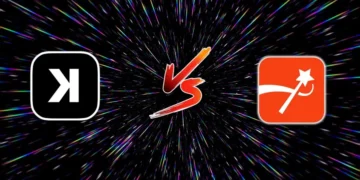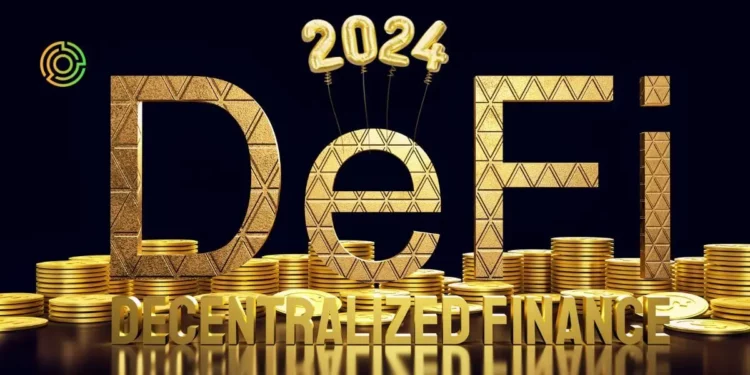As we step into 2024, the decentralized finance (DeFi) sector stands at a crossroads, poised between recovery and evolution. The past year witnessed a prolonged winter in the DeFi space, but the latter half marked a significant shift with the initiation of a recovery process that is still underway.
Recovery and Evolution: The Dual Path of DeFi in 2024
In the coming year, the pace of recovery is expected to continue robustly, mirroring the positive sentiment across the entire cryptocurrency market. Simultaneously, the ongoing evolution of decentralized finance is influenced by various factors, including regulatory trials.
It’s crucial to note that regulations will play a pivotal role in opening doors to institutional capital and tokenization. Despite the potential contradiction with DeFi’s core principles, regulatory frameworks become increasingly necessary. Without them, protocols risk becoming attractive havens for illicit activities.
Regulatory Experiments: A Decisive Phase for 2024
Looking ahead to 2024, we may witness decisive regulatory experiments shaping the long-term future of the DeFi sector. The potential bullish market in the crypto world could expedite regulatory establishment attempts. However, the clear regulation of some of the most decentralized ecosystems remains uncertain.
The immediate future of the DeFi ecosystem hinges on regulatory developments. While experimental steps have been taken in jurisdictions like the European Union and the United Kingdom, a comprehensive regulatory framework is yet to materialize.
The Regulatory Challenge for 2024
After assessing the journey of the DeFi sector so far, it’s evident that some gears are still missing in its machinery, with regulation taking the spotlight. Experimental initiatives, such as the DLT pilot in Brussels and similar steps in London, are underway in developed markets. The immediate trajectory of decentralized finance heavily relies on these markets, with macroeconomic conditions potentially slowing down regulatory experiments.
Capital influx and the tokenization of assets like real estate are contingent on the success of regulatory initiatives. The integration of DeFi with CeFi (Centralized Finance) remains a distant reality without a clear regulatory framework.
The Immediate Future in the DeFi Ecosystem
While regulatory challenges loom large in 2024, the flip side presents a sector in recovery. Total Value Locked (TVL) and trading volumes on DeFi protocols could match or surpass the highs of 2021, contingent on the broader crypto market entering a bull run.
However, this bullish atmosphere could be detrimental. Without established rules, common issues like scams, fraudulent projects, and negligent risk management could persist.
Expert Insights on DeFi in 2024
Industry leaders express optimism about the short-term prospects of DeFi in 2024. Julian Deschler, co-founder of Web3 privacy protocol Elusiv, anticipates a resurgence of constructive growth. Deschler sees 2024 as the year where projects with real value and scalability catalyze legitimate traction for DeFi, marking the beginning of long-term adoption by the general public.
Kain Warwick, founder of the Synthetix derivatives market ecosystem, echoes this sentiment, predicting the end of the bear market in 2024. According to Warwick, the impressive price momentum witnessed in the last quarter of the previous year is likely to continue as macro liquidity unfreezes throughout 2024.
Regulation and Transparency: Key Themes for 2024
The regulatory landscape is expected to undergo significant transformations in 2024. After frequent clashes between the crypto industry and U.S. lawmakers in 2023, DeFi is unlikely to escape scrutiny in the coming year.
Nathan Catania, a partner at XReg Consulting, emphasizes that true DeFi has less to fear from regulators compared to centralized alternatives. However, he predicts that 2024 will witness regulatory actions against Hybrid Finance (HyFi) projects, positioned between CeFi and DeFi.
Antoni Zolciak, co-founder of privacy-enhancing Layer 1 Aleph Zero, foresees a crucial year for regulation. As institutional capital eyes crypto markets through discussions on ETFs, asset tokenization, and Web3 launches, DeFi readiness takes center stage. Zolciak suggests that market trends in DeFi for 2024 will revolve around addressing institutional concerns and fostering compatibility with regulatory frameworks.
The Tokenization Trend in 2024
A prominent prediction for 2024 is the widespread tokenization of assets. From new yield-bearing stablecoins to real-world asset tokenization (RWA), the DeFi sector is poised for massive growth.
Sveinn Valfells, co-founder and CEO of Monerium, highlights the increasing recognition of the role played by fiat currencies in trade and the integration of traditional assets into blockchains. He anticipates the momentum of fully authorized and regulated on-chain fiat currencies to gain traction in 2024. This is driven by the enthusiasm surrounding RWAs and their potential to revolutionize the sector.
Tokenization’s Impact on DeFi
The tokenization trend is set to drive a significant portion of the DeFi sector in 2024. Danny Chong of Tranchess predicts substantial growth in certain areas, foreseeing a tenfold increase. Chong emphasizes the role of tokenization in bridging traditional and decentralized finance, enhancing accessibility and liquidity.
Stablecoins with Yield: The Emerging Trend
Looking ahead, stablecoins with yield are predicted to dominate DeFi in 2024. Conor Ryder of Ethena Labs anticipates a substantial shift towards yield-bearing stablecoins, estimating a rapid growth from around 1 billion to over 10 billion dollars. The yields are expected to come from both Ether-based staking tokens and real-world asset-backed tokens.
See also: Analysts Predict Solid Growth for Cryptocurrencies in 2024
Conclusion
In conclusion, 2024 appears to be a pivotal year for the DeFi sector, marked by regulatory experiments, recovery, and the widespread tokenization of assets. Industry experts remain optimistic about the short-term growth of DeFi, anticipating a shift towards legitimacy and long-term adoption.
FAQs
What is DeFi, and how does it differ from traditional finance?
DeFi, or Decentralized Finance, refers to financial services built on blockchain technology, enabling peer-to-peer transactions without intermediaries. Unlike traditional finance, DeFi operates on decentralized networks, providing greater accessibility and reducing dependence on centralized institutions.
What challenges did the DeFi sector face in 2023?
2023 posed challenges such as regulatory uncertainties, security concerns, and the need for improved risk management. These factors influenced the sector’s growth and prompted discussions on regulatory frameworks.
How is the DeFi sector expected to recover in 2024?
The recovery of the DeFi sector in 2024 is anticipated due to a positive market sentiment and ongoing regulatory experiments. Industry leaders express optimism about constructive growth and the potential for increased Total Value Locked (TVL) and trading volumes.
What role do regulations play in shaping the future of DeFi?
Regulations are fundamental for opening doors to institutional capital and facilitating the tokenization of assets. While regulations may contradict some DeFi principles, they are increasingly deemed necessary to prevent illicit activities and ensure long-term sustainability.
What are Hybrid Finance (HyFi) projects, and how might they be affected by regulations in 2024?
HyFi projects exist between Centralized Finance (CeFi) and DeFi, with certain elements of control centralization. In 2024, regulatory actions are expected to be more stringent against HyFi projects compared to true DeFi initiatives.
How will tokenization impact the DeFi sector in 2024?
Tokenization is predicted to be a significant trend, extending from stablecoins to real-world asset tokenization. This shift is expected to improve liquidity, reduce transaction costs, and create new opportunities for DeFi protocols.
What are stablecoins with yield, and why are they expected to dominate in 2024?
Stablecoins with yield refer to stable cryptocurrencies that generate returns. In 2024, they are anticipated to be a dominant trend in DeFi, attracting conservative investors with features like yield generation backed by real-world assets.
How will the regulatory landscape evolve in 2024, and what impact will it have on DeFi projects?
The regulatory landscape is expected to undergo significant changes, with regulators likely to take more decisive actions. While true DeFi may remain outside regulatory perimeters, projects with elements of control centralization (HyFi) may face increased scrutiny.
What other trends can we expect in the DeFi sector in 2024?
Aside from regulation and tokenization, 2024 may witness the maturation of Layer 2 solutions, advancements in communication between these layers, and the continued growth of Web3 platforms, especially in the social space.
Follow us on our social networks and keep up to date with everything that happens in the Metaverse!
Twitter Linkedin Facebook Telegram Instagram Google News Amazon Store
Recent Posts
- AI-Powered Tools for Crypto Traders: The Best Platforms in 2025
- What are the types of artificial intelligence?
- The Rise of AI Beings: CARV’s New Roadmap Signals Next Wave of Web3 AI
- RoboCorp.co Debuts the World’s First Search Engine that Converts Human Data and Expertise into Crypto Income
- ZE23 launches SocialFi Platform that Pays Users for Time and Content Using Tokenized Rewards








































